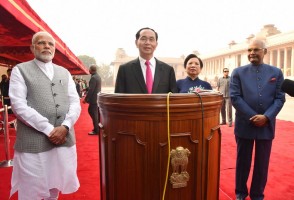
India must get more integrated with South East Asian countries & others
Tariff reduction impacts of the proposed Trans-Pacific Partnership (TPP) agreement, in terms of reduction in market access opportunities, will be relatively more on South American non-TPP countries as compared to non-TPP countries of the Association of South East Asian Nations. This is because ASEAN economies are relatively more Integrated through their production networks, said a report. Therefore, India should get more and more integrated to ASEAN +5 (including Australia, China, Japan, New Zealand and South Korea) production networks so as to mitigate the negative impacts of TPP (and another mega regional: Trans-Atlantic Trade and Investment Partnership (TTIP) on its market access. At the same time, this integration to ASEAN+5 production networks should balance India’s need for new employment generation with that of going upwards in value/supply chains, the report said and added that though tariff reduction impacts of mega regional trade agreements (TPP and TTIP) on the Indian economy will be small, sectors such as agriculture, textiles, engineering, pharmaceuticals, will be affected. More importantly, there may be relatively more negative impacts on these and other sectors, in respect to their market access in TPP and TTIP countries, which may be as a result of more stringent rules on standards, intellectual property rights, trade facilitation requirements as per these mega regional trade agreements. The report said that India should consider these challenges while negotiating the other mega regional trade agreements on which it is a party: the Regional Comprehensive Economic Partnership of Asia and the Pacific, and other bilateral trade negotiations such as with the European Union, the European Free Trade Area, Australia, Canada and also by exploring new market access opportunities in the CIS group of countries, South and Central American Countries and African countries. The implementation of the National Foreign Trade Policy of India, 2015 - 20, should be complemented with national policies on standards (with a particular emphasis on Adopting mandatory standards), intellectual property rights (balancing India’s Development needs and market access opportunities) and trade facilitation (easing cross Border movements of goods). These policies should be adopted in consultation with all relevant stakeholder groups including state governments and should be implemented as per the whole – of - government approach for better inter-agency cooperation and coordination.
May 2, 2015 | 6:36 pm IST.






 to success.
to success.